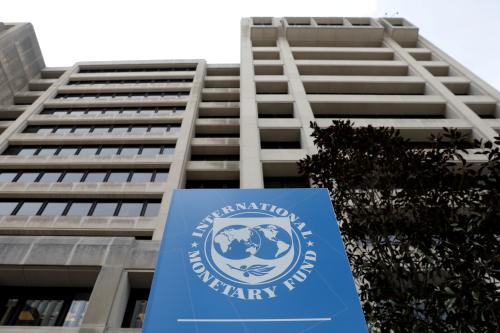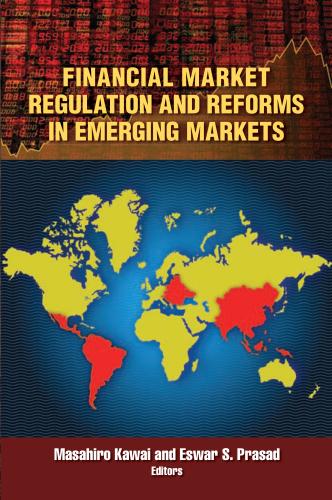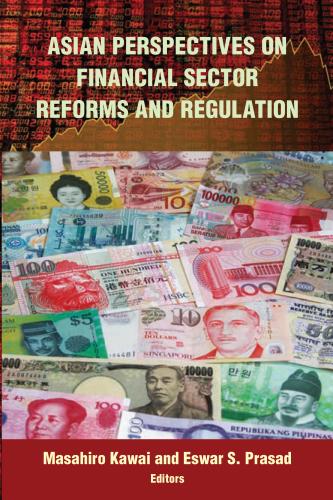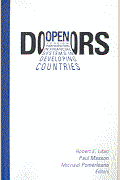The current crisis reveals two major flaws in the world’s crisis-resolution mechanisms: (i) funds available to launch credible rescue operations are insufficient, and (ii) national crisis responses have negative spillovers. One solution is to emulate the EU’s enhanced cooperation solution at the global level, with the IMF ensuring that the rules are respected.
Big global crises always trigger calls for big global reforms. This time is no exception.
Before G20 leaders embrace big-reform calls, they should look carefully at what happened the last time around.
When the last global crisis hit a decade ago, we saw a round of calls for big global reforms, including new institutions, new funds and new financial instruments that were touted as stabilising capital flows and allowing countries to insure against sudden stops. Other recommendations focused on bigger and better crisis lending, and on better international bankruptcy mechanisms.
While many of these ideas were good, virtually none of them were implemented.
Instead, the victims of the crisis — emerging markets — reacted unilaterally; they sought to shield themselves from similar shocks in the future by building large foreign exchange reserves, reforming their financial sectors, etc.
Many of the G20 nations are currently making unilateral adjustments to shield themselves from future crises; this is a good and inevitable reaction. The G20 meeting, however, should focus on two systemic issues:
- The lack of IMF lending capacity, and;
- Negative spillovers among the unilateral responses, i.e. the fact that one nation’s solution can become another nation’s problem.
IMF lending capacity
For all but a handful of giant economies, the proper response to a global crisis requires outside help. As in the Asian crisis, IMF funds are insufficient to launch credible rescue operations. The current resources of the IMF would be sufficient to put together credible rescue packages for no more than a couple of emerging market countries if the crisis were to hit them with full force. Funds to increase the IMF’s war chest should at least in part be raised from the large emerging economies. After all, they would benefit the most from improved insurance. In exchange, they should also get greater say in the institution.
Negative spillovers from national responses
The second major shortcoming of existing crisis resolution mechanisms is the negative spillovers of national crisis responses.
This problem is not new either, but it has become more apparent as interdependencies have increased and the number of packages has multiplied. Western governments have stabilised their own banking systems, but often at the expense of emerging economies.
Generous guarantees attract deposits from, and trigger runs in countries without the resources to back up such guarantees. Bailouts often impose restrictions on the support banks can provide to their foreign subsidiaries. The result could be the undermining of banking systems in many emerging markets.
These discriminatory practices should, of course, be forbidden. The IMF already does so in countries that benefit from its programmes. But most countries now bailing out their banks and guaranteeing their depositors do not need the IMF. One solution would be to give the IMF, or the Basel Committee, broader jurisdiction, but for this to be credible emerging economies — the main victims of these practices — must be better represented in the design and enforcement of the rules.
Ultimately, even these seemingly small improvements in crisis resolution mechanisms may require bigger reforms.
The regional route
But one possibility would be to start to start at the regional level. The negative spillovers are largely a European problem due to the extraordinary penetration of West European banks into Eastern Europe. If not all of the EU can agree on non-discriminatory practices, let a subset of member states pursue deeper collaboration on crisis resolution under the option of enhanced cooperation introduced in the Maastricht Treaty 1992 and spelled out in the Nice Treaty 2003. Members would subject themselves to bailout rules and perhaps even need to have certain institutions, like bank resolution mechanisms, in place before joining. The European Commission guarantees that the club would be open to any state that subscribes to its basic objectives and rules.
The obvious global approach would be to redraft the articles of the IMF to bring them closer in line with the more constraining spirit of the text originally signed in
Bretton Woods. Unfortunately, such reforms are likely to be resisted by some.
An alternative would be to emulate the EU enhanced cooperation solution at the global level. In such a global club for crisis resolution the IMF could play a role similar to the one played by the European Commission in ensuring that the rules are respected. With a set of transparent requirements for joining, like the Maastricht criteria, this proposal could also help address remaining weaknesses in the institutions for crisis prevention in emerging — and mature — markets.
The Brookings Institution is committed to quality, independence, and impact.
We are supported by a diverse array of funders. In line with our values and policies, each Brookings publication represents the sole views of its author(s).








Commentary
Targeted Improvements in Crisis Resolution, Not a New Bretton Woods
November 14, 2008